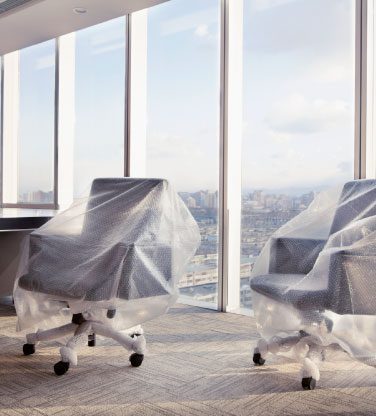STORAGE TIPS
LET US HELP YOU GET ORGANISED
Moving goods into storage is a good reason to dispose of all those unwanted items you should have thrown out years ago. Take an objective look through every room, drawer and closet in your home. Make use of non-profit organisations or charities, or even a garage sale to offload surplus items.
- Using packing materials, such as cartons, porta robes and plastic covers (all of which can be found at our office) will maintain and protect your goods while in storage
- Fill cartons to capacity
- Heavy items like books or tools should be packed flat in small cartons for easier handling
- Packing and labelling cartons by room makes it easier to unpack and also to find items while in storage
- Place larger, heavier items at the rear of the unit and then work forwards and upwards with lighter, more fragile items
- Keep items you may need to access often at the front and allow for a walkway through the unit if needed
Fridges, freezers and other white goods should be clean, dry and deodorised. Doors should be secured slightly ajar to maintain airflow. Keep shelving clear to prevent them from being marked or damaged.
Protect furniture with drop sheets or something similar, such as sheets and doonas. Empty the contents of wardrobes, drawers and cupboards to protect their shelving and structure. Clothing and personal goods should be packed in strong, secure cartons with naphthalene, mothballs or a similar product. Where possible, remove the legs from furniture (bed bases, tables etc.) to avoid damage and save space.
For TVs, DVD players, computers and other electrical goods, the original box is the best choice for repacking. If unavailable, first wrap items individually in bubble-wrap, pack closely into cartons and seal the top. Most computers have ‘self-parking heads’ – if you are unsure about your computer, refer to the manufacturer’s manual or consult a retailer. Masking tape is a great tool for labelling electrical ports. Remember to create a back-up of computer files before storing and keep the back-up off site.
Wrap delicate items individually in packing paper, as opposed to newspaper which can stain. Pack items on their edge and fill any gaps in the cartons with packing to prevent them moving around while in transit. It may be a good idea to label all cartons containing fragile items and avoid storing heavy items on top of them.
These items should be wrapped in bubble wrap or kept in a flat-pack carton. Store them standing on their edge in an upright position rather than lying flat.
We recommend that you remove batteries to avoid damage from leakages.
Drain fuel and oil from all machinery. This reduces the risk of spillage and damage to other goods in your space. Petrol and oil left in machinery are also a fire hazard.
- Arrange for the disconnection and reconnection of services, such as power, gas and phone
- Cancel any deliveries, including newspapers or weekly groceries
- Contact your local post office for mail redirection
Electoral office, motor vehicle registration and licence authority, taxation office, banks and financial advisers, insurance companies, educational institutions, Department of Social Security (RE pension payments, family payments etc.), Medicare, club memberships, subscriptions.
Any goods that are illegal, inflammable, explosive, hazardous, perishable or that are a risk to the property of any person.




